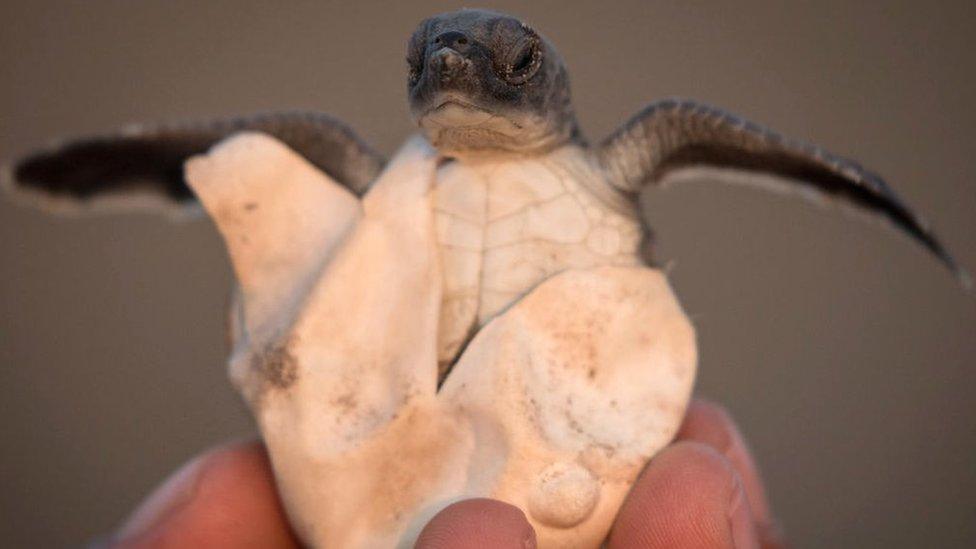Fake turtle eggs helping to fight the illegal wildlife trade
- Published
- comments

These little guys are having a tough time in the wild
Watch out 007 there's a new spy in town... the InvestEGGator!
A new study by a group of conservationists has revealed how a nifty new spy gadget has been used to help fight the illegal trade of sea turtle eggs.
Out of the seven species of sea turtle in the world, six are listed as endangered, and the trade of their eggs, shells and meat is illegal.
However, each year poachers still raid sea turtle nests, taking their eggs and selling them as a delicacy in some food markets.
Enter: The InvestEGGator - A 3D printed sea turtle egg, with a Global Positioning System (GPS) device inside, invented by Kim Williams-Guillén and developed by conservation group Paso Pacifico.
The great investEGGation!
As part of their study, the scientists placed some of these 'spy eggs' in sea turtle nests on four beaches in Costa Rica, so that if the eggs were taken by poachers, they could be tracked.
Of the spy eggs placed in 101 turtle nests, a quarter of them were illegally taken.
Some of the InvestEGGators were successfully tracked from thief, to trafficker, to consumer, giving local authorities useful information on how to protect the eggs.
Sea turtles are an ancient species, and have been around since the time of the dinosaurs — about 100 million years.
The study's lead author Helen Pheasey said: "We showed that it was possible to track illegally removed eggs from beach to end consumer as shown by our longest track, which identified the entire trade chain covering 137 kilometres."
Interestingly most of the eggs didn't travel far from the nests they were taken from.
"Knowing that a high proportion of eggs remain in the local area helps us target our conservation efforts. We can now focus on raising awareness in the local communities and direct law enforcement to this local issue." said Helen Pheasey.
The results weren't always cracking...
Unfortunately not every InvestEGGator was successful.
Six of the fake eggs were found on the beach, suggesting they'd been rumbled and discarded.
Out of the eggs that were not taken, 32% of them didn't work. This could be because water got through the seal on the eggs and damaged the GPS device.
Green, Hawksbill, Kemp's ridley, Leatherback, Loggerhead, Olive ridley and the Flatback.
Also of the eggs that were taken, some of them were taken to areas where a GPS signal could not be picked up. However, researchers said this would improve as technology developed on the Caribbean coast.
Inventor Kim Williams-Guillén said she hopes the InvestEGGator technology can be used to help protect more turtle populations in the future, as well as potentially be adapted to monitor egg thefts from other animals like crocodile and parrot nests, and the illegal shark fin trade.
- Published10 September 2020
- Published13 February 2020
- Published21 November 2019
